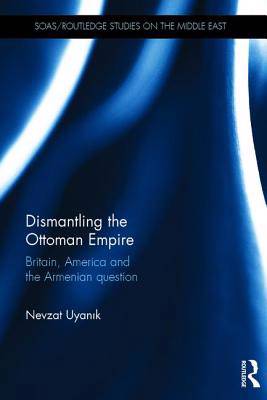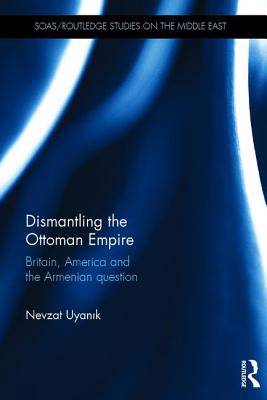
- Afhalen na 1 uur in een winkel met voorraad
- Gratis thuislevering in België vanaf € 30
- Ruim aanbod met 7 miljoen producten
- Afhalen na 1 uur in een winkel met voorraad
- Gratis thuislevering in België vanaf € 30
- Ruim aanbod met 7 miljoen producten
Omschrijving
Prior to World War I, American involvement in Armenian affairs was limited to missionary and educational interests. This was contrary to Britain, which had played a key role in the diplomatic arena since the Treaty of Berlin in 1878, when the Armenian question had become a subject of great power diplomacy. However, by the end of the war the dynamics of the international system had undergone drastic change, with America emerging as one of the primary powers politically involved in the Armenian issue.
Dismantling the Ottoman Empire explores this evolution of the United States' role in the Near East, from politically distant and isolated power to assertive major player. Through careful analysis of the interaction of Anglo-American policies vis-à-vis the Ottoman Armenians, from the Great War through the Lausanne Peace Conference, it examines the change in British and American strategies towards the region in light of the tension between the notions of new diplomacy vs. old diplomacy. The book also highlights the conflict between humanitarianism and geostrategic interests, which was a particularly striking aspect of the Armenian question during the war and post war period. Using material drawn from public and personal archives and collections, it sheds light on the geopolitical dynamics and intricacies of great power politics with their long-lasting effects on the reshuffling of the Middle East.
The book would be of interest to scholars and students of political & diplomatic history, Near Eastern affairs, American and British diplomacy in the beginning of the twentieth century, the history of the Ottoman Empire, the Middle East and the Caucasus.
Specificaties
Betrokkenen
- Auteur(s):
- Uitgeverij:
Inhoud
- Aantal bladzijden:
- 192
- Taal:
- Engels
- Reeks:
Eigenschappen
- Productcode (EAN):
- 9781138914025
- Verschijningsdatum:
- 25/09/2015
- Uitvoering:
- Hardcover
- Formaat:
- Genaaid
- Afmetingen:
- 157 mm x 229 mm
- Gewicht:
- 430 g

Alleen bij Standaard Boekhandel
Beoordelingen
We publiceren alleen reviews die voldoen aan de voorwaarden voor reviews. Bekijk onze voorwaarden voor reviews.











